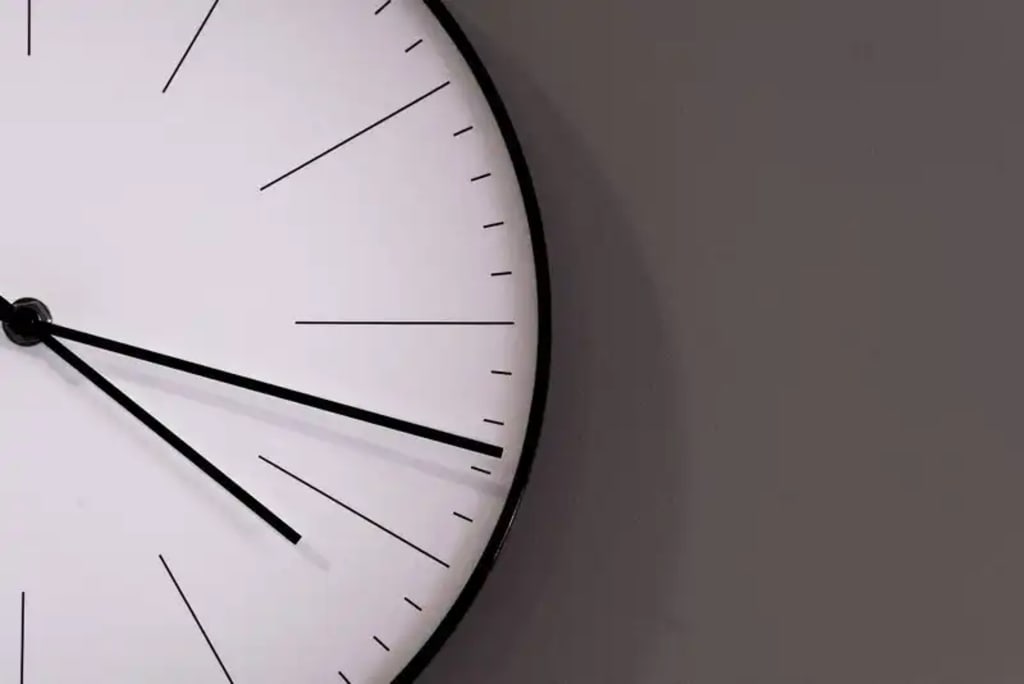The Critical Importance of Timekeeping in a Modern World
The Domino Effect: Consequences of Clock Failure

In our fast-paced modern world, timekeeping devices have become an integral part of our daily lives. From our smartphones and laptops to wristwatches, these devices automatically set the time based on programmed algorithms. But have you ever wondered how these devices know the exact time? Moreover, what would happen if all clocks in the world suddenly stopped? Let's check the fascinating world of timekeeping, explore the consequences of a clock breakdown, and reflect on the significance of accurate timekeeping in various aspects of our lives.
The Foundation of Timekeeping
To understand the intricacies of timekeeping, we must go back to the source of time itself. The National Physical Laboratory in Southwest London houses some of the world's most renowned atomic clocks, known as hydrogen masers. These remarkable devices, numbering around 400 globally, play a vital role in guiding our planet through time. They serve as the foundation for modern technologies such as satellites, operating systems, GPS, flight schedules, and train timetables.
Atomic Clocks: The Guardians of Time
Atomic clocks operate on the principles of precise atomic vibrations. Instead of using a conventional pendulum, atoms exposed to microwave radiation oscillate approximately 9 billion times, equivalent to one second. These atomic vibrations are incredibly accurate and unchanging, making atomic clocks the gold standard for timekeeping. In fact, the error margin for such clocks is a mere one second every 10 million years.
The Implications of Clock Failure
Imagining a world without functioning clocks may seem inconceivable, but the consequences would be severe. The breakdown of atomic clocks would disrupt the coordination of various systems and sectors worldwide. For instance, the aviation industry heavily relies on precise timekeeping for flight schedules and air traffic control. If all clocks ceased to function, flights would be grounded, and airports would face chaos and potential disaster.
The impact would extend to other modes of transportation as well. Train stations would struggle to manage trips and coordinate railway tracks without accurate timekeeping. The complexity of these systems demands precise timing to ensure smooth operations and passenger safety. Moreover, the economic repercussions would be substantial. Banking systems would falter, salaries would be delayed, and financial markets would become chaotic.
The Collapse of Logistic Chains
One of the most significant ramifications of clock failure would be the collapse of logistic chains. Materials and goods, such as processed steel, wood, electrical components, and oil, rely on precise timing for production and delivery. The disruption of these chains would lead to scarcity, economic crisis, and widespread panic. Without functioning clocks, the world would plunge into chaos, affecting not only the manufacturing industry but also everyday essentials.
The Return to Natural Timekeeping
Amidst the chaos caused by a global clock failure, humanity would need to adapt and find alternative ways to manage time. Taking a cue from our ancestors, who lived for thousands of years without precise timekeeping, people would once again rely on natural indicators. Sundials, shadow positioning, and hourglasses of various sizes would regain popularity, guiding human activities and schedules.
The potential breakdown of clocks and the subsequent chaos it would bring serves as a powerful reminder of the intricate interconnections that underpin our modern society. It highlights the importance of maintaining and advancing our timekeeping technologies to ensure the smooth functioning of various sectors and systems. Accurate timekeeping is not merely a convenience; it is a foundational element that enables global coordination, efficient transportation, and synchronized economic activities. It is a reminder that the progress and stability we enjoy in the modern world are deeply intertwined with the precision and reliability of our timekeeping devices.
As we navigate through a rapidly evolving technological landscape, it is crucial to continue investing in the research and development of advanced timekeeping mechanisms. From atomic clocks to emerging technologies, we must strive for ever-increasing accuracy and resilience in our timekeeping systems. By doing so, we can safeguard against the potential disruptions that a global clock failure could bring and ensure the uninterrupted flow of our interconnected world. Let us appreciate the intricate dance of time and the remarkable devices that keep us in sync, allowing us to navigate through our lives with precision and harmony.





Comments
There are no comments for this story
Be the first to respond and start the conversation.